By Shkëlqim Abazi
Part seventeen
Memorie.al / I were born on December 23, 1951, in the black month, of the time of mourning, under the blackest communist regime. On September 23, 1968, the sadistic chief investigator, Llambi Gegeni, the ignorant investigator Shyqyri Çoku, and the cruel prosecutor, Thoma Tutulani, massacred me at the Department of Internal Affairs in Shkodra, they split my head open, blinded one of my eyes, deafened one of my ears, after they broke several of my ribs, half of my molars, and the thumb of my left hand, and on October 23, 1968, they took me to court, where the unfortunate Faik Minarolli gave me a ten-year political prison sentence. After they cut my sentence in half, because I was still a minor, sixteen years old, on November 23, 1968, they took me to the political camp of Reps and from there, on September 23, 1970, to the Spaç camp, where on May 23, 1973, in the revolt of the political prisoners, four martyrs were sentenced to death and executed by firing squad; Pal Zefi, Skënder Daja, Hajri Pashaj and Dervish Bejko.
On June 23, 2013, the Democratic Party lost the elections, a perfectly normal process in the democracy we claim to have. But on October 23, 2013, the General Director of the “Rilindja” government sent Order No. 2203, dated 23.10.2013, for; The dismissal of a police employee. So Divine Providence was intertwined with the neo-communist “Rilindja” Providence and, precisely on the 23rd, they replaced me, no more and no less, with the former Security operative of the Burrel Prison. What could be more meaningful than that?! The former political prisoner is replaced by the former persecutor!
The Author
SHKËLQIM ABAZI
Continued from the previous issue
Rreps
(Forced Labor Camp)
Memoirs
Truly, nine years after the execution of the martyr Hajri Pashai, the criminal Feçorr would also end up before the firing squad, just as Hajriu had foretold on May 21, 1973. So, these special predictive abilities were not simply based on the hatred they felt for the regime and its cannibalistic leaders, but on a deep analysis of the system’s phenomena in its homeland, the Soviet Union, and in other satellite countries of the communist East: where the leading elites were beheading each other, solely to ensure a quiet and long reign for the top brass.
During my years in prison, I had the opportunity to get to know several of these oracles up close. They were the intellectual elite in the political prisons, formed in the most renowned schools of the West and the East, the most prominent representatives of various fields, such as professors of philosophy, history, mathematics, chemistry, literature; doctors, engineers, agronomists, politicians, journalists, actors, artists, theologians of all faiths, etc. Naturally, I don’t have the space to mention them all, but I will single out the most typical ones, with whom I happened to share the hellish days in the tormented years of suffering and hope.
In prisons, observing internal political life or the phenomena happening outside had become a mania. Especially the intellectuals who meticulously followed events, chronologically listing them, analyzing them in detail, and after debating in their circles, came up with concrete conclusions. They would predict what the next consequence and victim would be, even determining with dizzying accuracy the time when the event itself would occur. They were almost infallible: the event would inevitably be realized within the temporal limits they predicted. The margin of error of these “polls,” to use today’s terms, was low; only the date of the event might shift slightly in time, but the event itself would happen with the maximum possible certainty. I am a witness to several such cases and will mention a few:
***
The first case belongs to the beginning of 1969.
In January or February, I was sentenced to one month in solitary confinement for fighting and insubordination. In the camp cells, I had the chance to be in a cell with the priest Dom Mark Hasi. It was the moment when I had to pass the test of fire, or “The Trial Bank,” as it had become customary to say for a new prisoner when they faced punishment for the first time. I’ll talk about this topic later; now I will only tell of the predictive abilities of that wise priest, who gave me my first lessons of purgatory.
So, I ended up in the isolation cell because I hit an immoral spy and, supposedly, for insubordination to the police; but this was only the cause, as the consequence lasted a long time. After I categorically refused to apologize, I was given the maximum punishment: one month in a cell with the priest, in the Siberian cold of Rreps. For about four hours, they kept me tied to an electric pole with copper wire, and then they took me to the cells. At that time, the camp had only two.
In the cell they put me in, I found an elderly man with a somewhat grotesque body. He was big-boned but very emaciated, with a head that was quite voluminous for that body, just bones and skin. The moment they shoved and threw me inside, he didn’t speak but continued pacing along the cell. Soaked, I huddled in a corner, shivering from the cold because I had spent almost the whole day tied up in the rain.
Since I was exhausted from the long time standing, as soon as I was freed from the handcuffs, as I mentioned, I leaned in a corner to calm down. From the neighboring cell, two voices scratched my ears, asking me why I had been brought in tied up, etc. I told them who I was and what trouble had befallen me, then I mentioned the name of the person because of whom I was there. From beyond the wall, cheers echoed for the so-called heroic act I had performed according to them:
“Congratulations, you’ve put that spy, scoundrel, pederast in his place!”
“Bravo, as soon as I get out of here I’ll give you a kilo of sugar!” – One promised.
“I’ll give a pack of cigarettes!” – Another, etc., etc.
Right then, a powerful bass voice boomed in the space of my cell:
“But, watch yourself now!”
The echo of this voice startled me. It resonated even after the one who spoke had closed his mouth. I was stunned and looked at him in wonder, what were this elderly man, bone and skin, who had such a rare tone!
“You’ll become a target for the operative now!”
The strong voice continued to resonate, but it was surprisingly sweet with soft notes, of this withered old man. I have only heard this tone from lyrical baritones since. After two weeks of trials, we became friends. In the last two days, he spoke to me about some topics we hadn’t touched on until then. He gave me a lecture on history and philosophy that left indelible impressions on my conscience and would greatly influence my formation.
But in this chapter, I will only talk about his predictive ability regarding the duration of the dictatorship and the moment of its overthrow. With almost mathematical precision, at the end of a long tirade, he concluded: “And now, I have to remind you that this scab won’t go away quickly, it will take quite a while to get to the end of it. My generation, like me and many others, will remain on the road; we will have neither the physical possibility nor the age to reach freedom.”
“Dom Mark, you are still young, so you have no reason to give up! We believe in America and the democratic world; they will intervene, and soon the geostrategy will change. The peoples of the East will win freedom, along with them our nation too!” – I interrupted the priest with unfounded optimism. At that time, I truly thought, believed, and hoped in what I expressed.
“Don’t interrupt me, I’m already talking. I’m leaving the cell tomorrow and I don’t know if we’ll have a chance to meet again. I want to finish what I have to say. I told you and I repeat, this is a long road, it will take at least another two decades to get to the end. By that time, the laws of nature will have taken their course; I and many others of my age will have died in prisons and internment camps. But a part must survive and pass on to future generations all these sufferings and miseries, these sacrifices and martyrdoms. After all, someone has to speak on our behalf. And who better than you young people to do this? So, you have to survive from this! Then I’ll come to the purpose I wanted to reveal to you from the beginning. You, my boy, must survive!”
He fell silent; the overly long lecture had tired him. He leaned exhausted in the corner of the door and closed his eyes as if to sleep. I didn’t speak; I was waiting for him to continue. But when I saw him with his eyes closed, I broke the silence:
“From what I see, you’ve become a pessimist, Dom Mark! These months here, you fed me the idea that communism is living its last days and that the failure of this diabolical doctrine was preordained from its inception, for the very fact that it represents an abusive practice with no scientific basis. The damage that this plague has caused to the peoples it befell is immeasurable, so like every black-fated ideology, it is destined to disappear a moment sooner. If I didn’t have this belief in the future, I don’t know what I could have done; perhaps I might have ended up under a hail of bullets, at the wires.”
He didn’t answer me, but with one hand he made the sign of the cross and with the other he signaled me to be silent. He stood for a few minutes as if petrified, muttering under his breath, and then he turned to me:
“No one has the right to squander life! Or to play with anyone’s fate! This short earthly temporality is the most precious gift the Blessed God has given us, even if sometimes we are hurt by it! The Lord in His Greatness has put us to the test, even pushing us into temptation or difficulty in some cases; but we must overcome it. Whoever cannot resist physically, must at least endure spiritually and morally.
In this world, we are all sinners, but blessed is he who forgives the sins of others and wins eternal happiness! We are all due one death, but we shouldn’t dwell on it! Because it is simply a status. That’s why it’s said for a dead person ‘he changed life’! So, do you understand what that means? Yes, he went to eternal life. But as long as we are here on this earth, we must dream of this life! We must taste both the venom and the joy, until the very last second! Everyone must traverse the Calvary without complaint, must fulfill their duty until the last beat of the pulse. Life is very beautiful, even here in this darkness where they have locked us, we must know how to grab onto positivity.
So, I believe we understood each other; no one has the right to squander their own life. Nowhere in the Gospel, the Quran, or other holy books is suicide mentioned; this act is seen as the most despicable, condemned by every religion. No one should ever think of practicing it. Christ sacrificed himself for all of us earthly beings! And even while suffering, humiliated under the weight of the cross, he never thought of offending anyone, and in the end, he forgave everyone! Therefore, it is a sacrilege to kill oneself and to kill others! We are condemned to carry this earthly burden with us, until Golgotha. Each of us is a missionary in his own way, oh my dear!
So, I told you that we are missionaries in this world, now I confirm it; we are indeed! Missionaries! But the mission is a relay race, which is handed down to generations. The old monk, tired from the long journey, closes himself in the monastery and waits to leave this world, a young one takes his place, and the mission continues.
But in conditions of reprisals like ours, when no one knows if we will be alive tomorrow, we must prepare as many missionary disciples as possible, to pass on the relay. Finally, my dear friend, you must be careful not to face the devil, who is the Sigurimi, the police, and the spies. You must seize the opportunity to avoid their violence. So, you must lower your head, endure without being broken, without being defiled, and for this reason, I am telling you all this. You must, therefore, endure for another two decades until the day of blessedness comes.”
“Dom Mark, don’t two decades, or twenty years, seem like a lot?! Can one endure for so long?!” – I retorted, surprised by this extreme prediction. According to Dom Mark, we would have to push on under the heel of communism for many, many more years. It was something indigestible that even the realists of that time would not have dared to think. If we were to take these deadlines as true, many political prisoners, in despair, would have thrown themselves at the wires or ended up crazed in mental asylums.
But now, as I look at the past from the distance of years, I recall those events and bring to mind the words of that wise man, and I say: “You were right!” The priest, tempered by countless sufferings and privations, had been precise in his predictions, making a very, very small error of one year. Exactly twenty-one years after this tirade, places of worship were reopened in Albania and communism tumbled down.
On November 4, 1990, when Dom Simon Jubani, my friend and fellow sufferer and student of Dom Mark, celebrated the jubilee mass in Shkodra, the first person who came to mind was precisely the unforgettable and unyielding one, my dear friend Dom Mark Hasi, who in the cells of Rreps in 1969, showed me the steep paths.
“Yes, Dom Mark, you were right! But we young ones were impatient!”
***
And now a second prognosticator, diametrically opposite to the first, both in political positioning and intellectual formation. During my prison years, and even after, I had the opportunity to meet different people with different concepts, formed in different schools, representatives of different philosophical, cultural, and literary currents. The different worldviews have not prevented me from getting along even with difficult types.
One of my most special friends, the writer Astrit Delvina, explained to me in 1973 the phenomenon of different worldviews, according to his own theory. As a follower of the French Revolution and an admirer of Robespierre, he defended the revolutionary spirit, but when democratic tolerance was discussed, he rose above the head-chopping theory of the revolution. One day in a burst of passion, as he spoke, he explained to me that democracy should not be a rigid dogma but a broad concept of opposites, which, willy-nilly, cannot exclude one another.
“To be a democrat, my friend, first means to be patient enough to listen to what your opponents say or think about a social phenomenon or occurrence, and not just what you think. Everyone views democracy according to their own perspective, they evaluate it according to the format and philosophy they have embraced, so dear friend, everyone thinks they are a democrat in their own way and, to put their ideas at the service of humanity, they seek the path they judge to be the best.”
“According to your theory, even the communists, fascists, and Nazis were pure democrats, since they did everything in the name of the people and supposedly in the service of democracy,” – I objected.
“No,” – he replied flatly. – “They can never be democrats; they never had the patience to listen to an alternative opinion, that is, their opponents. As soon as they encountered opposition to their ideas, they erected the guillotine and chopped off heads. He or they who stood up to them paid dearly, even with their lives. True democrats propose ideas, they defend them with arguments, perhaps sometimes with more fervor than necessary, but they do not become murderers. With us, you find such people only in political prisons! As an illustration, I would recommend to anyone who doubts the truth of these qualities to observe the Burrel prison for a few weeks to see and touch this reality.”
This conversation, which took place in one of the old mines of the second zone, in the HELL of Spaç, brought to mind an event from several years earlier.
***
In Burrel prison, in the same cells and in the same courtyard, many political prisoners belonging to different political currents were forced to endure the endless years of successive sentences; from nationalists of both sides, Zogists and Ballists, to social democrats and communists, sacrificed in a war within their own kind. Not to mention the clerics of different religious faiths, such as Catholic and Orthodox priests, imams and babas, who, in all honesty, lived in perfect harmony with each other, but who openly opposed the politicians, especially the leftists. In this environment also vegetated people without any political consciousness, simply unfortunate souls who had been exiled there to serve sentences for crimes they had never committed? Unfortunately, I was also sent there for a short time. Anyway…!
There I met different types, but among the most special who is related to the topic was Halim Xhelo from Dukat, the famous general of the State Security, former director of the Fifth Directorate, who had waged the most brutal war against those who were serving their sentences in this prison, even against his own father.
When he had been brought there some time ago and found himself in this prison with those who had suffered as a result of his cruelty, he was shocked; he had not wanted to live in the same room with them. But when he saw the way they received him and accepted him into their midst, despite his opposing political convictions and the unprincipled war he had waged against them, he was stunned. He would confess to me, more than once, how wrong he had been in his inaccurate assessment of the enemies of communism, he had prejudiced them all as dogmatic and intolerant, but when he himself ended up in this prison, he would verify the opposite.
After my repeated insistence, naturally pushed by the older prisoners, to learn the truth about the falsified historical events and facts, one day he agreed to speak and answer the questions I asked. But before I elaborate on the conversation with him, I want to say a few words about the strange character of this former general. Halim, like all people from Vlora, was stubborn and persistent in the views he defended, as a prototype of a bully and a spiteful person, he spoke with gestures and in a loud tone. But one must give him credit; he was a fearless brave man. Perhaps this unyielding character, which his former comrades knew well, also predetermined his painful end, his disappearance in the prison cells.
I am presenting the following conversation in a simple interview format.
I: “Mr. Halim, can you tell me why you communists who are here don’t get along with each other, when all the others, regardless of party affiliations, get along as if they were a family?”
Halim Xhelo: “Listen, my boy! I’ll tell you from the start, this is not your thing. You are neither knowledgeable enough nor interested in learning what you asked; others have incited you (and he was right). Anyway, since you have been insisting for a while, I finally decided to answer you, so that your instigators can hear it too.
I don’t know if you know “kokoshët”? We from Vlora call these big reddish-brown ants. In different areas, they are named differently, as far as I know, people from Berat call them “kaponjë”. Well, these “kokoshët” don’t work. They are notoriously lazy, but big gluttons. They consume most of the food that the worker ants gather. The “kokoshët” fight for a long time for hegemony; they “eat” each other’s heads. But…!
Here the fable begins. When they realized they could all win without exterminating each other, one day they gathered and decided to divide everything that was in the nest equally among them? So: it was said, it was done! But as time went on, one of the “kokoshët” would forget and break the pact, and they would catch him stealing. The others would gather and with an open vote, they would unanimously condemn the pact-breaker; whoever dared to side with him would suffer the same punishment.
The first one and his friends were done with! When some time had passed since the punishment of this group of ne’er-do-wells, and after they had made a new oath of eternal loyalty, another “kokosh” was caught red-handed, that is, secretly eating the common food. The “kokoshët” gathered again in an even larger assembly and with the same procedure condemned the second thief and those who followed him. This story continued with others who suffered the same fate, like their former comrades, against whom they had once raised their hand to punish. Finally, the number of “kokoshët” with broken antennas decreased, but new “kokoshët” appeared on the scene and this story repeats and will repeat endlessly, until the last “kokosh” has also disappeared.
Thus, the “kokoshët” who are still alive and have gathered here, as long as they consider themselves “kokoshët,” will not forgive each other for the raised finger. Even after dying in the next world, it will be impossible for them to ever reconcile.
That’s the first version; now listen to the second one:
-In weddings in our parts, but not only with us, people would go on horseback and with “harxhe” (gifts/expenses). You had to have a snow-white “qylaf” (a traditional hat), the thickest “bërruc” (a decorative element) and the longest hair. Oh, and you had to have a sparkling clean Mauser even if you yourself hadn’t washed for a month. Then came the “harxhet” or “darovat” (gifts), the bigger and fatter the ram, the more honored the gift-giver. And your place would be determined, as a merit of these things I mentioned above.
When it was time to get the bride, the groomsmen were chosen according to rank, but not everyone could be a groomsman, because the number was limited. It came to the point where those who had come to the wedding with this goal and did not find themselves part of the group of groomsmen, at best, would leave the wedding, but it happened that to vent their spleen, they would drink more than they could handle and start fights. The host of the wedding would take measures to calm them down, but when he failed, sometimes it would go to the point of a rifle. The wise men would intervene and find a solution; either the drunkard would be laid down, or he would be removed from the table. Thus, the wedding would be ruined, gossip would start and heads would be turned away./Memorie.al




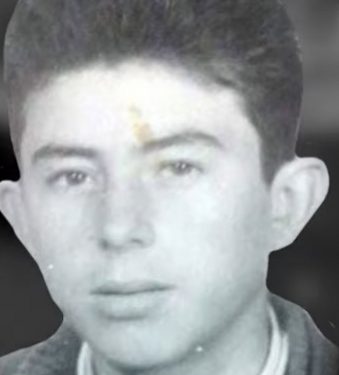
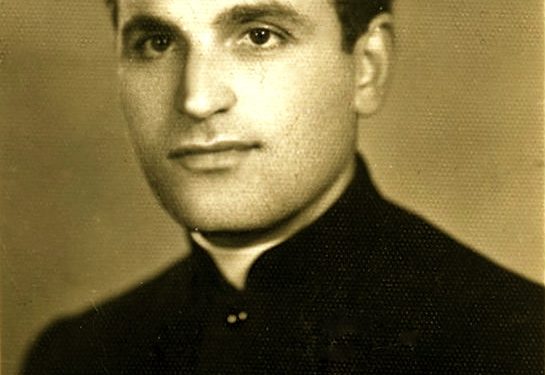
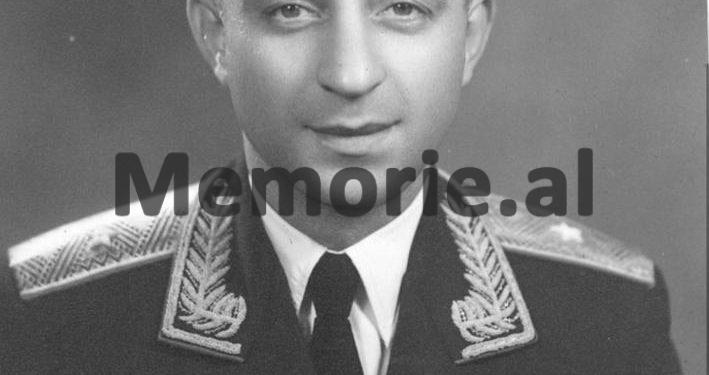
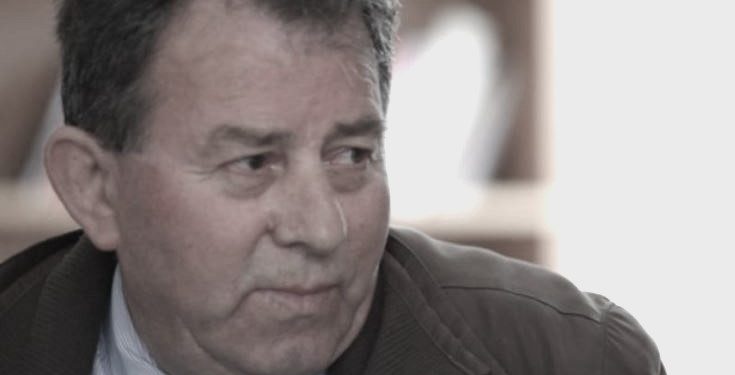
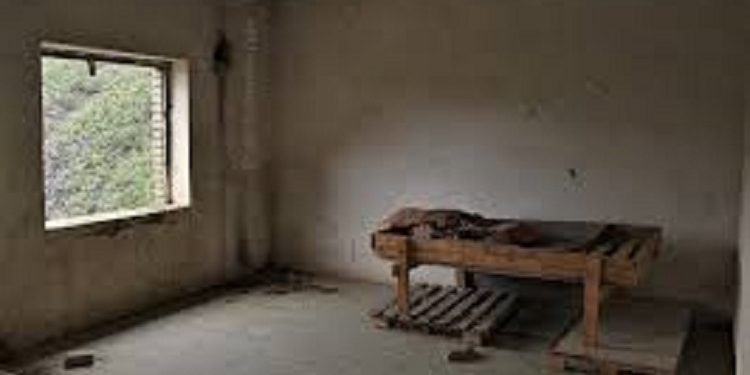
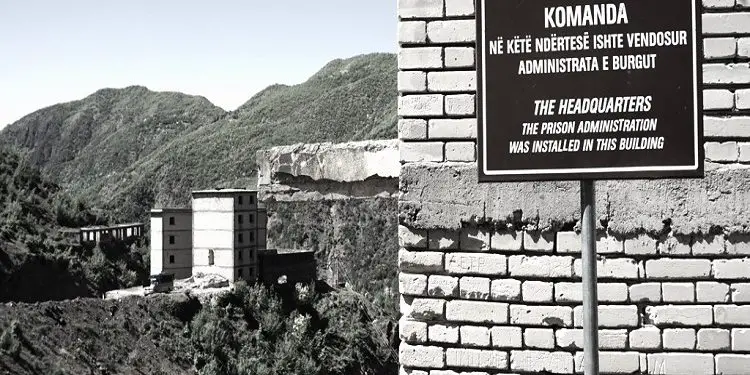
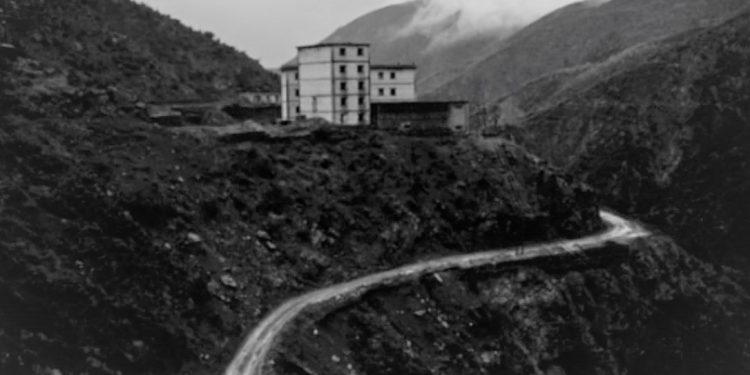



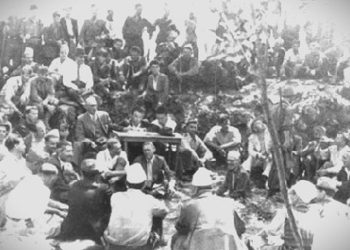
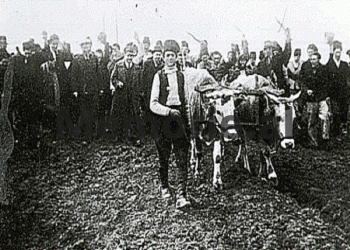
![“They have given her [the permission], but if possible, they should revoke it, as I believe it shouldn’t have been granted. I don’t know what she’s up to now…” / Enver Hoxha’s letter uncovered regarding a martyr’s mother seeking to visit Turkey.](https://memorie.al/wp-content/uploads/2026/01/Dok-1-350x250.jpg)
